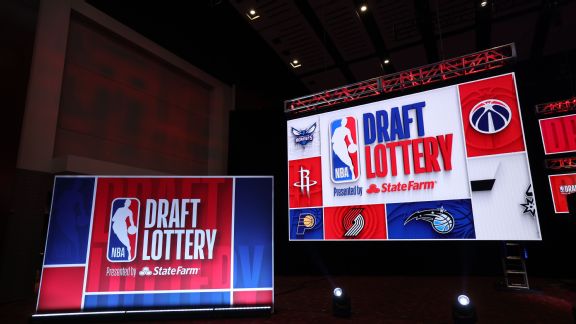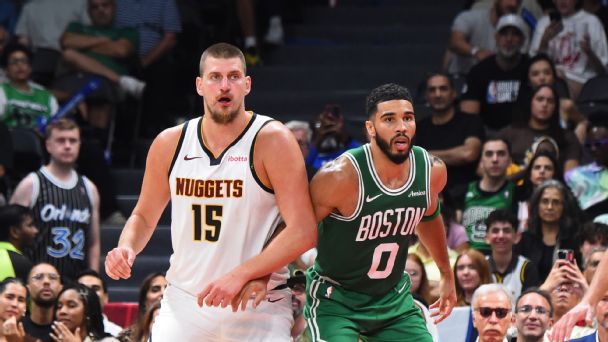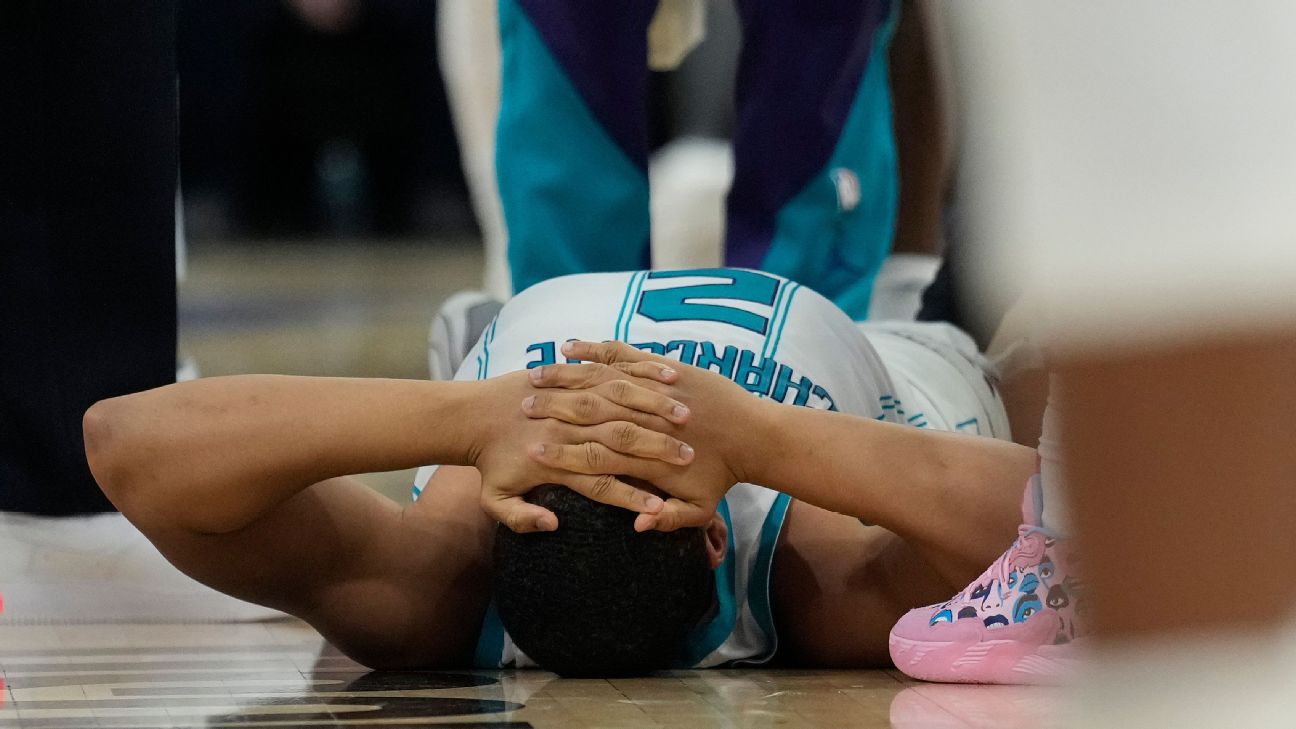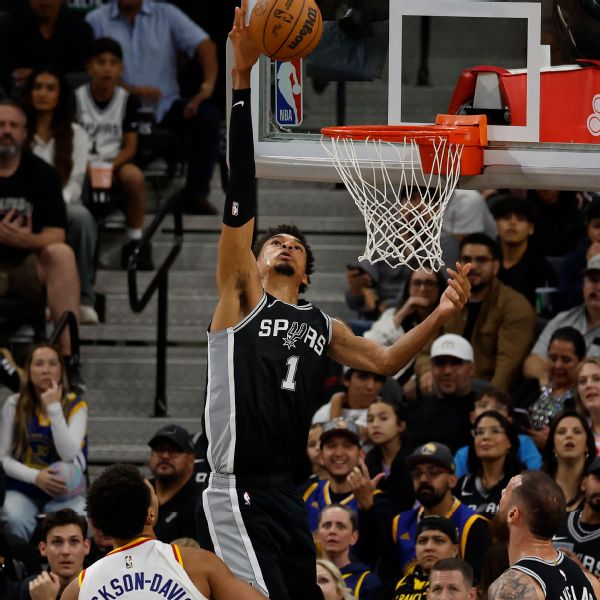Seconds before the pingpong balls started flying in the real NBA lottery drawing, held in a locked-down room shortly before the televised version, Brian Wright, the San Antonio Spurs general manager, reached his right hand across his chest and tapped his left shirt pocket twice.
That is the end of the secret handshake Wright shares with his 9-year-old son. Something was in that pocket — some good luck trinket — but Wright would not reveal what it was after the Spurs won the momentous 2023 lottery and the right to draft French phenom Victor Wembanyama. At their family home, Wright’s son was supposed to have a corresponding good luck charm and execute their secret handshake, Wright said.
Hours earlier, R.C. Buford, the Spurs CEO, had arrived at his hotel room in Chicago and was astonished to see a familiar blue leather chair with a card attached. It was the same chair Buford had been sitting in in his office in San Antonio when the Spurs won the Tim Duncan lottery in 1997. He had given the chair to his daughter when she went to college, he told ESPN after the lottery Tuesday. His family secretly sent it to his hotel.
“I had a meditation in my blue leather chair this afternoon,” Buford said.
Back in the drawing room, the first pingpong ball came up: No. 14. Fourteen balls, numbered 1-14, zip around a classic air-powered lottery machine before a league attorney stops the machine and sucks one up. That ball becomes the first of four drawn in sequence, eventually making up a four-number combination. There are 1,001 possible four-number combinations using the numbers 1-14. The NBA tosses out one of them — 11, 12, 13, 14 — and divides the rest among the 14 lottery teams based on their team record and lottery odds.
The Spurs, Detroit Pistons and Houston Rockets held 140 combinations apiece — 420 of the 1,000. The New Orleans Pelicans, the lottery team with the best record, owned only five.
The combinations go in numerical order, so that the worst teams — Houston, Detroit, San Antonio — have almost all the combinations featuring the numbers 1 and 2. Seeing 14 as the first ball had the whole room in play for Wembanyama for a fleeting 10-second window. Wright panicked. “Oh my god, we are out,” he thought to himself, Wright told ESPN in the drawing room minutes after the drawing ended. (ESPN had one of 19 media members present to watch the drawing.) Each lottery team sends one person to the room to represent them. They sit in rows, with the teams with the best odds up front and the long shots in the back.
In that last row, Teresa Resch, the Toronto Raptors vice president of basketball operations, elbowed Bryson Graham, the New Orleans Pelicans assistant general manager, when that 14 came up, both recalled: We have a chance!
Ten seconds after the 14, up popped the next ball: 5. Almost everyone was still in play. Michael Finley, the Dallas Mavericks assistant general manager, knew that any of the teams below the Mavericks in the lottery pecking order — the Raptors, Pelicans, Chicago Bulls and Oklahoma City Thunder — leaping into the top-4 could knock the Mavs back from No. 10 to No. 11. That would have meant the Mavericks sending their top-10 protected pick to the New York Knicks — a potential embarrassment given Dallas’ late-season tanking to slide out of the play-in race and into that No. 10 slot. (The NBA fined the Mavericks $750,000 for “conduct detrimental to the league.”)
Finley stayed calm, knowing the odds still favored the worst teams. “I wasn’t nervous,” he said. Finley won a championship with the Spurs in 2007, and joked after that drawing that perhaps he should have brought along his Spurs championship ring for good luck.
(On the flip side, many within the league feared the Mavericks 3% chance of winning the lottery — and being rewarded for their late-season resting with Wembanyama.)
All around the room, team officials flipped through eight sheets of paper showing which teams owned each combination. The mood was frantic.



